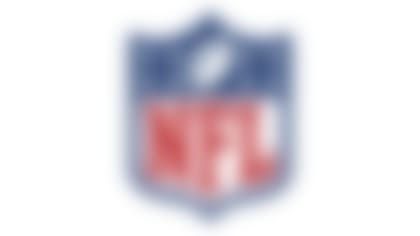CARSON CITY, Nev. -- The Nevada Legislature has signed off on a plan that would use $750 million in public money to build an NFL stadium in Las Vegas, despite opposition to a project partly funded by billionaire casino mogul Sheldon Adelson.
A cadre of lobbyists for the project worked hard to firm up enough of the shaky votes to meet the necessary two-thirds threshold and scraped by with the minimum amount of support Friday when lawmakers called for a quick vote without the customary speeches. Republican Gov. Brian Sandoval, who's been supportive of the project, is expected to sign the deal Monday in Las Vegas.
"I would like to thank Governor Sandoval, the Southern Nevada Tourism Infrastructure Committee, and the members of the Nevada Legislature on this historic day," said Raiders owner Mark Davis. "All parties have worked extremely hard to develop and approve this tremendous stadium project that will serve as a proud new home for the entire Raider Nation."
The Nevada Senate gave final approval to some minor changes, after the Assembly voted 28-13 and the Senate voted 16-5 in favor of the bill. The measure would raise hotel taxes by up to 1.4 percentage points in the Las Vegas area to fund a convention center expansion and build a 65,000-seat domed stadium backers hope will lure the Oakland Raiders.
Nine Democrats and four Republicans in the Assembly opposed the bill in the, which made unlikely allies out of people on the far left and far right of the political spectrum.
"It's exciting," said Andy Abboud, chief lobbyist for casino mogul Adelson's Las Vegas Sands, after the sudden vote. "But this is really about jobs, and I think at the end of the day people saw this as a fantastic economic stimulus package."
The project was nearly derailed late Thursday by a state report that said the Nevada Department of Transportation wants to accelerate nearly $900 million in planned road work to accommodate stadium-related traffic. Lawmakers, who hadn't been warned about the estimate during routine discussions on the project, said they felt blindsided.
Transportation officials clarified that the projects were already planned and wouldn't require raising additional revenue.
Critics also decried the rushed deal, which is happening in an abbreviated special session rather than the four-month regular session next spring, and complained that the Legislature was applying new tax revenue to a stadium instead of reserving it to alleviate an anticipated state budget shortfall.
"We are funding luxury items before we're taking care of our needs," said Democratic Assemblywoman Teresa Benitez-Thompson, who opposed the deal. "I don't let that happen in my home and I'm not going to let it happen ... in this house."
The public contribution will be larger in raw dollars than for any other NFL stadium, although the public's share of the costs -- 39 percent -- is smaller than for stadiums in cities of a similar size, such as Indianapolis, Cleveland and Cincinnati.
Critics pointed out that some outside economists, including Stanford professor and sports economist Roger Noll, have panned the deal as a boondoggle based on outlandish financial expectations.
Defenders of the stadium say Las Vegas' outsized tourism economy, with 150,000 hotel rooms and 42 million visitors each year, is different than other markets that are more dependent on locals and where stadiums are more likely to cannibalize other businesses.
Copyright 2016 by The Associated Press











